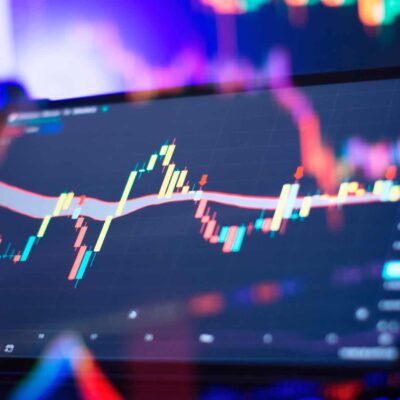At WIT, technology litigation is a major part of our business. And because of that, we are continuously researching the industries that tech innovation impacts the most.
In our effort to anticipate future litigation trends in advanced technologies, we take a proactive approach to deliver insights from leading experts across industries and look at arising trends in litigation within each sector, along with issues that converge across them.
Expert Industry Insights
To understand where legal disputes may lie in 2024, we asked some of our esteemed experts to offer insights on the trajectory of their industry as technology continues to rapidly evolve. These experts are true professionals in their field and were carefully selected for their knowledge, experience, and ability to communicate effectively. They include:
- Dr. Muriel Medard, renowned wireless expert
- Josh Grant, gaming pioneer
- Julie Wurmlinger, automotive industry executive
Let’s see what they had to say about what’s to come in their respective sectors.
Dr. Muriel Medard on where she thinks litigation will lie for the wireless industry in 2024:
“The cross-licensing trend we saw last year has gained momentum, including in international cross-licensing. We are also seeing issues around actual use popping up in damages. For example, if a technology is considered standard-essential but is not actually deployed, or deployed but seldom used, what are the damages? This is something we had discussed some time back and we are seeing those arguments now being made in cases. We are also seeing more activity around very specific technical aspects in hardware, creating a need to delve deeply into the minutiae of the technology.”
Josh Grant on what types of disputes he thinks will continue at a high level in the gaming industry this year:
“I expect litigation trends around antitrust, IP/copyright, and consumer protection to accelerate in 2024 due to factors such as Epic’s win over Google, macroeconomic concerns driving economic pressure on all participants, and non-gaming companies challenging Apple’s platform fees. The proliferation of AI and the exposure of patents revealing how consumer data is used in gaming to affect user experience (so-called “Dark Pattern” investigations) will also contribute to this trend. In 2023, antitrust legislation in gaming saw historic challenges to the hegemony of established platform gatekeepers.”
Julie Wurmlinger on what she thinks 2024 will bring to the automotive industry:
“In 2024, I expect the auto industry to experience significant technological advancements. A notable trend will be the increased use of AI and Machine Learning (ML) to advance vehicles to higher levels of autonomy, specifically moving rapidly from Levels 2 and 3 to the more advanced Levels 4 and 5 autonomy. This development involves the use of sophisticated algorithms by vehicles’ onboard computers, enabling them to interpret data gathered while driving and act on behalf of the driver under certain conditions. These algorithms are designed for “learning,” enhancing accuracy and operation in a manner akin to human learning through feedback loops. As a result, we can expect most new vehicles on the road to reach higher autonomous operation levels.”
WIT’s Technology Experts
We understand that technology litigation can be highly specialized and exceedingly complex. That’s why at WIT, we engage with experts who possess a deep understanding of the sectors that are experiencing heightened legal risk as a result of ongoing technological shifts. We focus on industries with increased possibility of litigation and build expert teams comprised of world-class academics, industry executives, and former government regulators to who have been selected for their knowledge, experience, and ability to communicate effectively.
Reach out to learn more about our experts in these evolving areas of technology, created to address what we expect to be the key areas of litigation in each of their sectors. We have experience working with clients on a wide range of matters including patent infringement, theft of trade secrets, breach of contract, antitrust, and securities.








